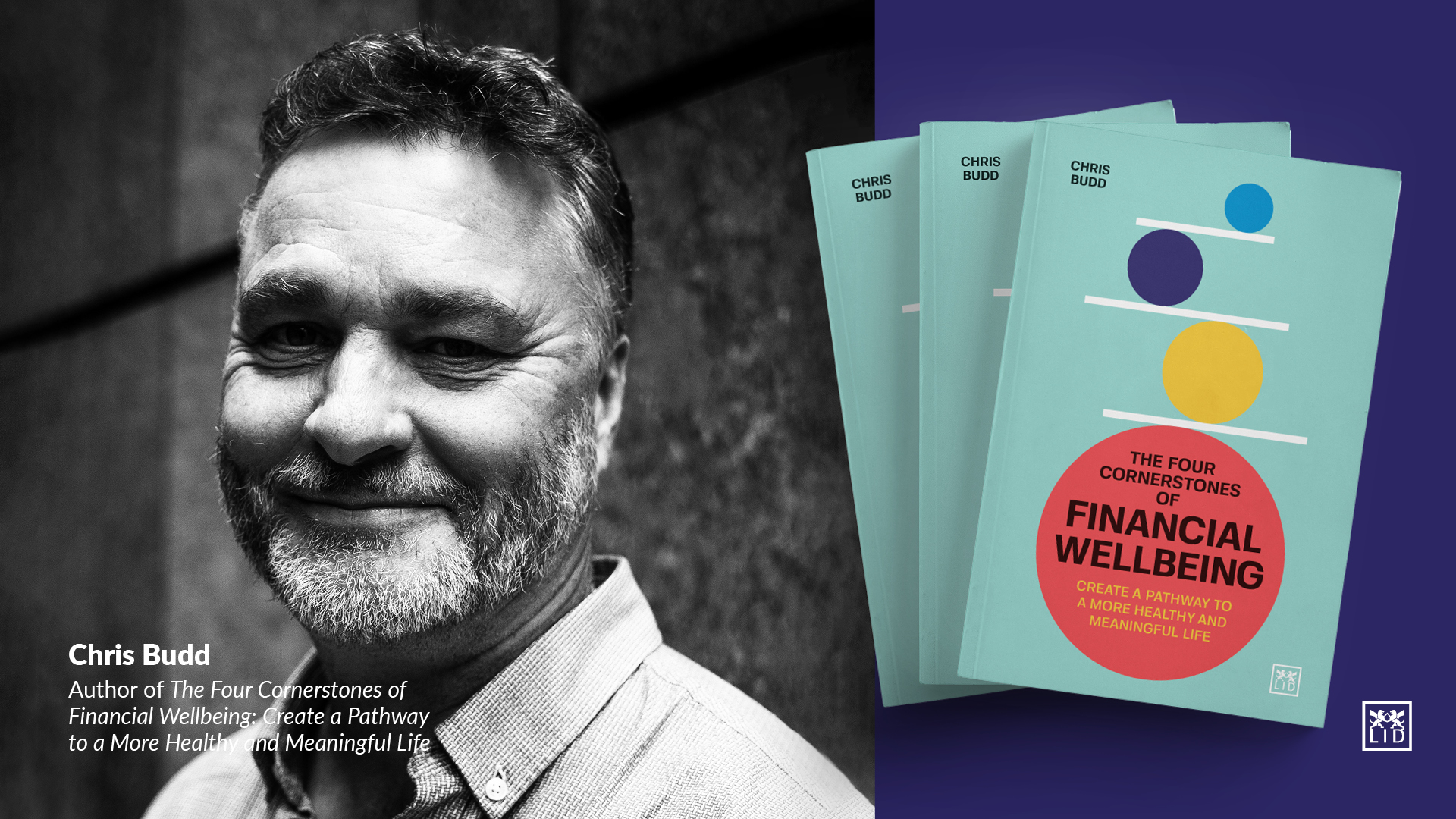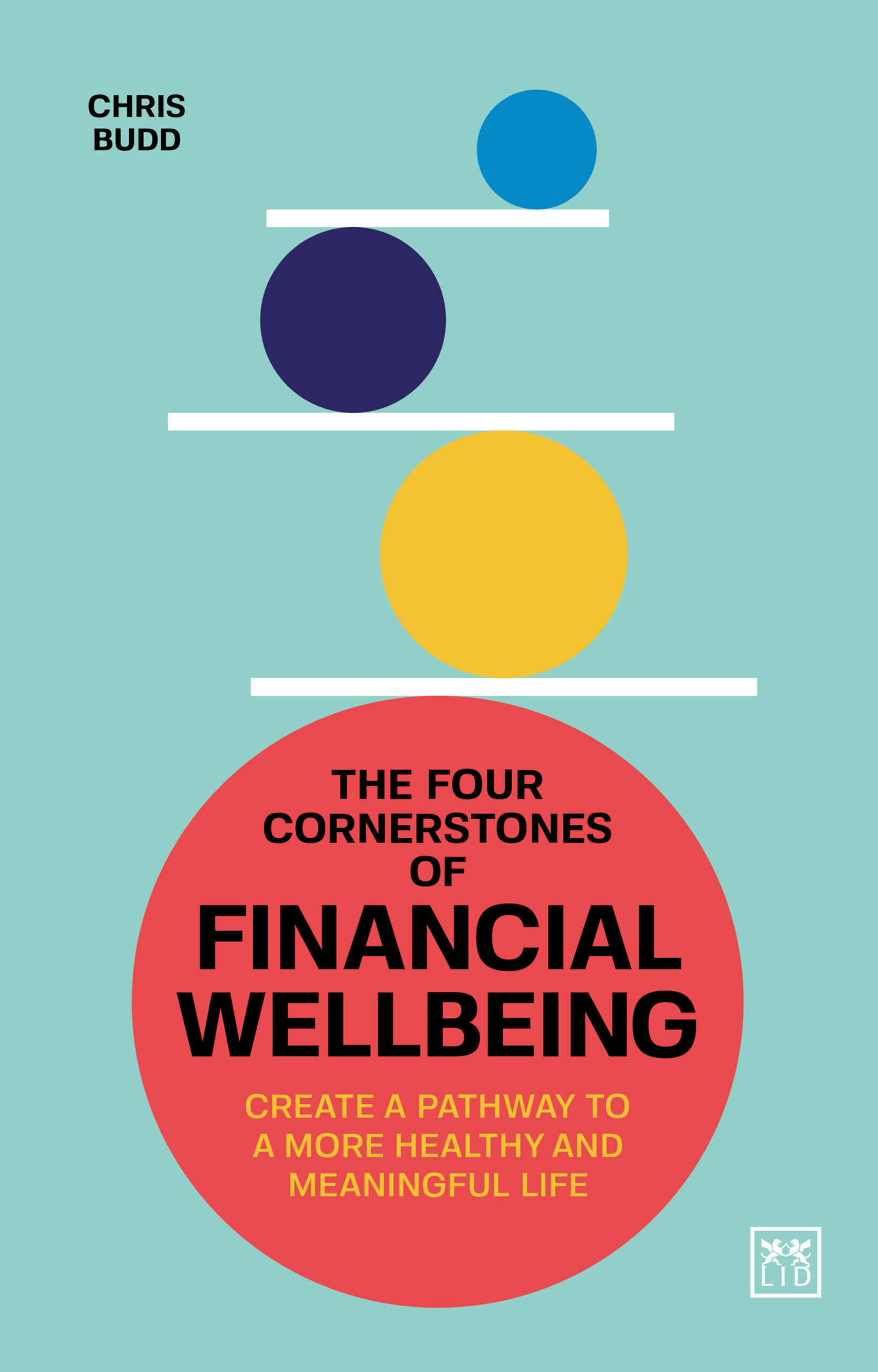|
Your Wealth Saturation Point with Chris Budd
Your Wealth Saturation Point

By Guest Contributor Chris Budd
Author of The Four Cornerstones of Financial Wellbeing, Chris Budd, shares how we can figure out how much money we need to be happy.
There is a myth that says money makes you happy. This is embedded into popular culture, such as music. Money Makes The World Go Around, Money (That’s What I Want), Money, Money Money, to name but three examples.
There’s another myth that says money doesn’t make you happy. Can’t Buy Me Love, Price Tag, Life In The Fast Lane to also name but three.
There are also about a gazillion blues songs which suggest that a lack of money is the source of all of the singer’s troubles.
So who is right?
It feels absurd to say that money doesn’t bring happiness. A certain amount of money is needed for food and shelter. Just ask someone who has received a bonus at work and can now go on a holiday if that money has brought them happiness.
Recent research is also rather contradictory. One set of research suggested that any income above $75k a year would not bring any more happiness. More recent research suggested there wasn’t a limit, and that happiness keeps increasing with income. Then the two came together and found that both can be true, depending on your underlying level of wellbeing.
But surely there is a limit. Give Bill Gates a million dollars and it won’t bring him any extra happiness.
Somewhere between nothing and Bill Gates sits a tipping point, the moment when an extra fiver won’t bring any extra happiness.
Wealth Saturation
I remember doing an experiment in science class on the subject of saturation. We had to pour salt into a glass of water. First a teaspoon. The salt was absorbed by the water. Then another. That too disappeared. Soon were putting in just one grain of salt at a time, and watching it disappear. Eventually, one grain floated to the bottom of the glass, and we knew that the water was saturated with salt and could not absorb any more.
Which leads to the question: What is your wealth saturation point? What is your answer to the question ‘How Much Is Enough’? Why not write a figure down, just take a guess. How much would you need to be your most content?
In order to properly answer this question, we first need to understand what makes us happy. You see, financial planning is really very simple – first, work out what you want from life, then spend your money on that.
Working out what you want from life isn’t so easy, however!
Wellbeing First, Money Second
The secret to a healthy relationship with money is to put it in its proper place. We so often see money as the destination. In fact, it is the vehicle.
This is the real answer to the question does money make you happy – it is the wrong question.
We should not be asking if more money makes us happier. We should be asking what makes us happy, what are the sources of joy and contentment – and then how can money help us to achieve this.
In addaddressinge questions in this order, we quickly realise that a focus on the accumulation of wealth does not lead to wellbeing.
The true sources of joy are relatively simple. Having meaning and purpose in your life. Kindness, the giving and receiving of. Exercise. Being involved with something that matters either to you, or to others. Having quality social relationships. Research after research (as well as the teaching from religion and philosophy, art and literature) tells us that these are the sources of wellbeing.
Your Joy
To work out your own wealth saturation point, therefore, you need to first work out what brings you joy. Some of this will be what I have already described – but how does this apply to you?
Where does meaning and purpose enter your life? Are you getting your self worth from internal sources, or from the approval of others? What are your intrinsic motivations, the things that you want to do because they make you happy, and that aren’t reliant on external factors such as status or the approval of others?
Once we have an understanding of what life we would enjoy, only then can we answer that question ‘How much is enough’. It is very likely that if you go through this process of understanding what will make you happy and then calculating how much this might cost, you will find that your wealth saturation point is actually a lot lower than the number you previously wrote down.
Which gives us the answer to the question of whether money makes us happy or not. It’s up to us.
ABOUT THE AUTHOR
Suggested Reading
 The Four Cornerstones of Financial Wellbeing presents an understanding of our finances that is defined not in terms of wealth or status, but by your happiness. Through a four-cornerstone approach, it provides practical advice on how to create a financial wellbeing plan that will help you to focus away from simply accumulating wealth, and instead focus on enjoying your life. The author leads the reader into understanding their own definition of success, what brings happiness and wellbeing, and the distractions and barriers that stops us from achieving wellbeing. Based on this insight into what we want from life, we can create a pathway to use money to increase our wellbeing and have a more healthy, fulfilling and enjoyable life.
The Four Cornerstones of Financial Wellbeing presents an understanding of our finances that is defined not in terms of wealth or status, but by your happiness. Through a four-cornerstone approach, it provides practical advice on how to create a financial wellbeing plan that will help you to focus away from simply accumulating wealth, and instead focus on enjoying your life. The author leads the reader into understanding their own definition of success, what brings happiness and wellbeing, and the distractions and barriers that stops us from achieving wellbeing. Based on this insight into what we want from life, we can create a pathway to use money to increase our wellbeing and have a more healthy, fulfilling and enjoyable life.

 Chris Budd is the founder of the Initiative for Financial Wellbeing and is the Chairman of Ovation Finance. He is the author of The Financial Wellbeing Book (part of LID’s Concise Advice series)and The Four Cornerstones of Financial Wellbeing (LID) and is based in the UK.
Chris Budd is the founder of the Initiative for Financial Wellbeing and is the Chairman of Ovation Finance. He is the author of The Financial Wellbeing Book (part of LID’s Concise Advice series)and The Four Cornerstones of Financial Wellbeing (LID) and is based in the UK.